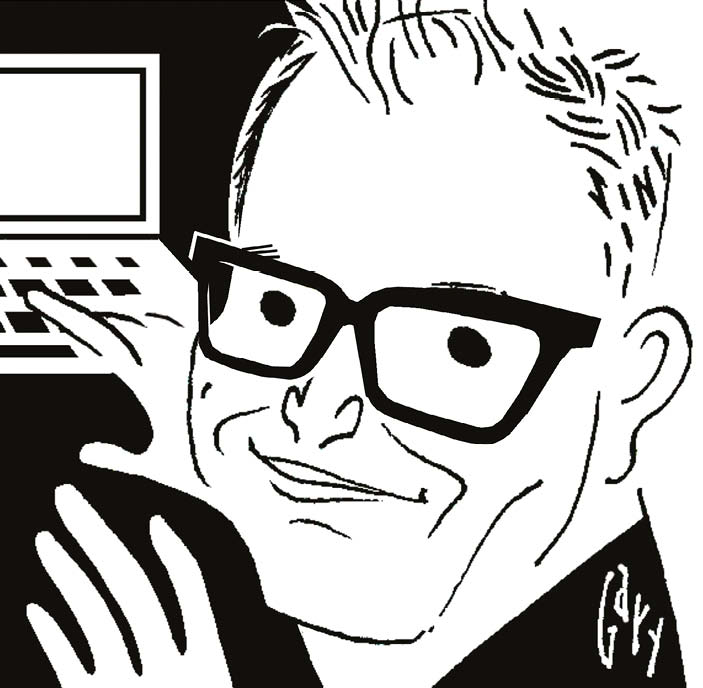

Cars I have owned
[So we come to No. 10 of this Series—by Sub-Lieut. G. P. Shea-Simonds, R.N.V.R.—Ed.] I RESOLVED before starting to write this short history of my experiences to stick rigidly to…

Last month Motor Sport decamped to the London Institute of Engineering and Technology for our first Game Changers evening. These live talk shows allow us – and of course our readers – to get close to stars of the track who, through natural talent, force of personality or technical genius have made a significant difference to the sport we all love.
The event featured Red 5 himself, Nigel Mansell, and he managed to set the bar high for those who will be coming after him (although Gordon Murray, who took to the stage a couple of weeks later, predictably rose to the occasion). In any case Nigel covered much ground – from Williams to Ferrari via IndyCar – but one anecdote stood out and I would like to repeat it in full here for the benefit of those of you who were not there.
In 1979, when Nigel is laid low after his F3 crash at Oulton Park, he receives an invitation from Colin Chapman to an F1 test at Paul Ricard. Things didn’t start well.
“I was totally demoralised. I was six seconds off the pace. One or two is bad… six is catastrophic! Peter Collins [Lotus team manager] was marvellous. He said: ‘Nigel, this is your first time ever in an F1 car, so download your brain tonight because we all have a conscious brain, but it is the sub-conscious brain that’s the one that you have to programme with repetition. Race car drivers don’t just get the ability to race. They get it by practicing [so much] that it actually starts to programme the subconscious brain’.
“So, Collins was trying to explain things to me, but it was going over my head. I was depressed. I was thinking I could be a F1 driver but the realisation of just how inadequate you are hits you like an atom bomb. That evening I went back to the hotel and said I don’t think it is for me. It’s been great but I’ll be coming home.
“I had a bad night’s sleep but woke up and headed to the track. Colin took me to one side and said: ‘How you doing?’.
“I said: ‘I’m very grateful, but it’s probably not for me.’
“He looked at me really strangely and said, ‘Why on earth would you say something like that? Just go out there and do your thing.’
“Anyway, to this day I can’t fathom it, so I will share it with you. When you drive an F1 car for the first time two things inspire you, the acceleration and the terminal speed you get up to where if you look sideways [it’s all a blur].
“So I’m doing 200mph down the straight and all of a sudden it was like a bird, a brick, a hammer, hit me in the head and I was startled because I was going flat-out and I wondered what had hit me. But nothing had hit me. Something phenomenal had happened to me as a human being and a person.
“The only way I can describe it is that everything was rushing past and instantaneously it all slowed down. And what had happened – I discovered after talking to a lot of people – was the brain had up-surged to the new speed. It had slowed things down so it could control speed. That is what great drivers do – they control speed. So 200mph now seemed like 60mph. When I got to the corner, I had time to brake, to change gear… And the next lap I was six seconds faster.”
Mansell goes on to explain that it is this moment that proved to him that he was an F1 driver. And indeed a few weeks later he tested for Chapman at Silverstone and smashed the lap record. The rest, of course, is history.
The story reminded me of the classic Gerald Donaldson interview with Ayrton Senna after his 1988 qualifying lap at Monaco: “I was no longer driving the car consciously,” said Senna. “I was driving it by instinct, only I was in a different dimension… It frightened me because I realised I was beyond my conscious understanding.”
Some believe such out-of-body experiences are what separates great drivers – and sports people in general – from the merely good. Some years ago I raised this with Don Macpherson, a sports psychologist who has worked with several F1 drivers as well as Ryder Cup golfers and Wimbledon tennis champions.
“Two elements have to be in place for the phenomenon to occur,” he said. “The first is high levels of concentration and the second is an element of danger. When there is significant danger, the normal mind – which is used to analysing things – jams up, so your natural instinct takes over. Your brain starts working differently, operating on deep memory, which in the case of racing drivers accesses all their training and practice.
“Drivers reach a different state of consciousness and in extreme cases can feel completely separate from their physical selves. In many ways this is the perfect state to be in when driving – you are channelling all your years of training directly to the car without your brain getting in the way. It can result in the ‘perfect’ lap.”
Whatever the truth of the brain’s ‘up-surge’, us mere mortals will probably just have to take Mansell’s word for it.

Joe Dunn, editor
Follow Joe on Twitter @joedunn90